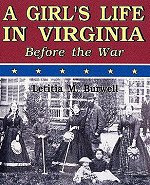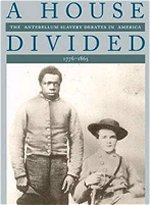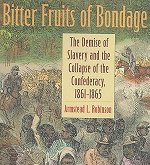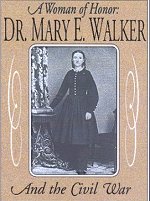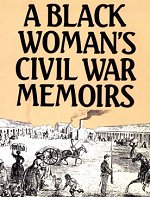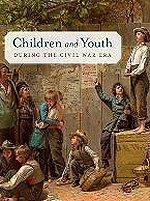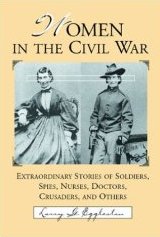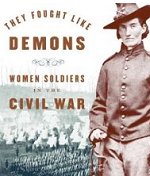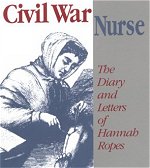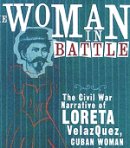|
Mrs. C. G. Richardson was born near what is now Brunson, Hampton County, but then old Beaufort District, 81 years ago. Her father, Mr. W. E. Brunson, owned a large plantation and the present town of Brunson later grew up in what was his cornfield.
Mrs. Richardson, then Hattie Brunson, was very small at the time the Civil War began, but she remembers the day her three brothers rode off to join the Confederate army. She knew they were going to war, but that meant nothing to her and she was excited and happy because when any of her brothers went away on horseback, he always took her in front of him on the saddle as far as the gate. She thought she was going to get the usual ride this time and was very much hurt and disappointed when none of them even noticed her except to kiss her goodbye. She was puzzled, too, because her mother was crying and the entire family looked serious and sad. She remembers, as though it were yesterday, standing with the rest of the family on the porch and watching her brothers gallop off down the road, turn and disappear from sight. In a short while she heard the sound of the horses returning and was surprised to see her brothers coming back up the drive. They brought their horses close to the porch, leaned across the bannisters, kissed their mother again and galloped away once more. This scene has been like a vivid picture in her memory all through the years and she says she had a strange experience sometime ago while watching a moving picture which had to do with Civil War days. The identical picture was re-enacted so exactly like the one she experienced that it gave her a distinct shock.
From the time she watched her brothers ride away to war, Mrs, Richardson says her memory seems to be a blank until the news came that Sherman's army was on the way. She recalls the great excitement on the plantation then as slaves and members of the family scurried about picking valuables and food preparatory to leaving home for the upcountry. The Brunsons had planned to travel with their neighbors in a sort of caravan to escape the path of Sherman's march and the five Brunson children were thrilled at the prospect of traveling. The day came on which they were to start and she remembers the disappointment they all felt when her mother, sitting at the breakfast table, announced that she had decided not to leave, but remain and take her chances with the Yankees right in her own home. Their nearest neighbors, the Richardson family, whose plantation adjoined their own and whose son, Dr, C. G. Richardson, the little Hattie Brunson later grew up to marry, decided to remain at home, also.
The change of plans necessitated a lot of work to hide food and valuables. Food and articles of values were secreted in the walls of the house and buried in the lot where they were covered with dirt and manure. Mr. Brunson, who was beyond the age limit and did not get into the army until toward the last, divided all the meat and provisions which he was unable to hide between his slaves, as he did not believe the Yankees would take food from them. At last they saw Sherman's army marching up the road. Five men approached first and searched Mr. Brunson, but found nothing. He had taken the precaution of giving his oldest daughter, a girl of about fourteen, his much prized watch several days before and Mrs. Richardson accompanied her sister into the woods where they hid it beneath the gnarled root of a large tree.
The soldiers entered the house and plundered it from cellar to attic. They ripped open mattresses and pillows, scattering feathers and cotton everywhere, and took whatever they fancied. Mrs. Richardson tells how they took the children's rag dolls and tore then to pieces before their eyes. However, they saved their best-beloved china dolls by hiding then on their persons. Having wrought havoc to their satisfaction in the house, the soldiers then proceeded to destroy what they could on the outside. The gin house, full of cotton, was just across the road from the house and this they set on fire. They killed all the chickens, hogs and cattle for their own uses, and what they could not use of the flour, rice and grits, they emptied together on the ground. They carried off all the horses and mules and left the plantation bare of all food. Fortunately, they did not burn the house, and also missed a lot of cotton which Mr. Brunson had stored in an empty house on the place.
The oldest Brunson girl was very pretty and several of the young Northern soldiers were smitten with her charms and tried to present her with gifts which they had pilfered from her father's house. Mrs. Richardson relates an incident which was far from funny to her then, but which, at this distance, often causes her to smile. She was sitting on the front porch with her sister when one of the soldiers offered her two hams from her father's smokehouse. The older sister refused the hams and the smaller child was astonished at such behavior for, in her opinion, hams were not to be spurned at that time when food was at a premium. The soldier put the hams on the edge of the porch and told her sister: "Well, I'll just leave them here for you in case you change your mind." She could scarcely keep from jumping up and grabbing the hams herself, but her sister rose contemptuously and kicked then to the ground.
Terrible as the situation was, the Brunson family got at least one good laugh at the expense of the Yankees. Mr. Brunson kept bees and one of the soldiers decided he would like to have some honey. It was obvious that he knew nothing of the habits of bees, for he marched boldly up to one of the hives and, stopping, smashed it open. When he raised his head it was literally black with bees. With a wild yell, he tore off frantically down the road to the accompaniment of the delighted laughter of the Brunsons.
Sherman's army was three days in passing the plantation and pitched camp on the Richardson place a mile away. From there, foraging parties would descend upon the Brunson home all during the day and night. If they found any of the children eating, they would snatch the food out of their hands and throw it away. The only food they had while the soldiers were in the vicinity were potatoes which their mother baked in the fireplace and they learned to slip the potatoes in their clothes when they heard soldiers coming. Once five officers visited their home and looking about at the disorder, inquired of Mrs. Brunson whether their soldiers were responsible. Mrs. Brunson, a quiet, retiring woman, spoke up with withering sarcasm: "You don't think I did it, do you?" They told her that she could have had a guard around her home if she had asked for it and she retorted that she bad asked and had been refused. Spying the piano, one of the officers sat down and played a merry tune while another danced about the room. Mrs. Richardson says she never heard that tune before or since until recently when she heard it ever the radio. It brought back to her vividly that scene of 73 years ago.
After the Yankees had moved on, they spent trying days in an effort to bring order out of the chaos. The children thought they had the hardest task of all - separating the rice from the flour and grits which the Yankees had emptied on the ground.
There were thirty-five or forty slaves on the Brunson plantation. Instead of living in quarters in what was known on most plantations as "the street", each family had its own little cabin located to give as much privacy as possible. With each cabin went a patch of ground for vegetables and chickens. The food given them was practically the same which the family ate and their clothes were made of homespun woven on the plantation. The house servants, washer women and those whose regular tasks allowed then a certain amount of free time, made the clothes of their own families, but the two sewing women sewed for the field hands. The health of the slaves was always carefully looked after for illness meant lose of time. The nearest physician was twelve miles away, but he was always called when slaves were sick just as he was for members of the family.
Mr. Brunson never bought slaves when it would mean a separation of families. He once came home from a slave sale bringing a woman with five children and the woman's aged mother. When asked why he had bought an old woman who could do no work, he replied that she could look after the children while their mother was in the field and, besides, he could not bear to separate the old woman from her daughter and grandchildren. No attempt was made to educate the slaves, but they were allowed to hold their own religious meetings and Mr. Brunson saw that all those who wished to attend his own church, where a place was set apart for them, got transportation. They could visit neighboring plantations in the evenings and on Sundays. When runaway slaves began to give trouble, it was necessary to give the slaves passes when they left the plantation so that they would not be taken up by the patrol. During the war It was the custom to hire out slaves to the army, but Mr. Brunson never hired but one and he was a man who had frequently run away and who, he was afraid, would cause trouble among the other slaves.
Several weeks after Sherman's army had gone, the news came that the slaves were free. Mr. Brunson sent for all his Negroes and explained the situation to them. They could either leave and go down to Beaufort where it was reported land was being divided up for them, or they could work on the plantation for wages or rent land for a third of what they made. He made it clear, however, that if they chose to leave, they could not come back. The Negroes were wild with enthusiasm over their freedom and without exception they decided to go to Beaufort, where they had dreams of becoming land owners. By the next morning they had all gone, having first carried back to their former master all the meat and provisions he had given them at the approach of the Yankees.
Between the slaves and their master's family there often existed a real affection. Such was the case between little Hattie Brunson and her nurse, Amy. She died when the little girl was too small to understand about death and one day she saw a wagon, in which was a long box, going toward the cemetery. One of the other Negroes told her that Amy was in the box. Horrified, the little girl ran after the wagon and when she saw the box being lowered into the grave, she ran screaming in protest and was caught by one of the grave-diggers just in time to keep her from falling into the grave. She says she has never forgotten this experience.
After Amy's death, little Hattie and her sisters had another nurse, whom she never could love as she did Amy. This nurse and Hattie were destined to meet in later life when the little girl had grown up and become Mrs. Richardson and both of them were living in Beaufort. After the war, the nurse married a Northern soldier and went to live in Charleston. She left him after a time and returned to her old home where she bought a piece of land from her former master and built herself a house. When she had almost finished paying for it, her husband appeared and persuaded her to return to Charleston with him. Not caring to sell or give her home to any of her Negro friends, the woman made out papers giving it to Mr. Brunson. In later years she moved to Port Royal, about five miles from Beaufort, and often used to stop in to see Mrs. Richardson to talk over old days.
Life was not very easy on the plantation during the war. Salt gave out and Mr. Brunson had to take slaves to the coast where they boiled water for the salt. They had plenty of brown sugar always and her mother also managed to make her supply of white sugar stretch over the war years for tea and coffee. When the supply of coffee was exhausted, parched okra seed, grits and rye were used as substitutes. Mrs. Brunson also made her tea last by alternating it at times with sassafras tea and a tea made of various herbs. Everything they used had to be made on the plantation, but at least her older sister got a treat once. Their father had been to Augusta and came back with enough calico to make her a dress. He paid one hundred dollars for the material in Confederate money.
Augusta was only a very small place then, although it seemed to Hattie Brunson when she visited it, very large and thrilling. A steamer ran from Savannah to Augusta and the cotton from the Brunson plantation was hauled fifteen miles to the landing where it was shipped to Augusta, where Mr. Brunson did all of his business.
There was very little entertaining during and immediately following the war, as there was neither time nor money to spare. However, Mr. Brunson kept open house, for people frequently passed and stopped for the night. Relatives and friends came to spend a day or several days at a time but, for the most part, the Brunson children grew up to themselves. Mrs. Richardson says they were never lonely, though, for there was always something interesting going on on the plantation. The railroad between Port Royal and Augusta was built when she was twelve or thirteen and went right through her father's plantation. It brought in a number of people who settled there and built homes and thus grew up the town of Brunson.
Mr. Brunson, like all plantation owners, had a hard time after the slaves were freed. One of his sons was a prisoner at Fort Delaware for twelve months but after the three boys had come home, they all set to work to retrieve their fortunes. Neighbors lent their assistance when it was needed and log-rollings, rail-splittings and wheat-harvesting became popular. Friends would gather to help each other do the work and these occasions always ended with a big dinner and perhaps a party or dance in the evening. When women visited they either brought their own sewing or helped their hostess sew. Everything had to be made by hand and the mistress of a large plantation never had a minute to sit in idleness. Through all the hard times, however, Mr. Brunson never had to mortgage or sell any of his land.
The Richardsons and Brunsons used to employ a schoolmaster for the children of both families. The school was situated about half-way between the two plantations and a house was built for the schoolmaster and his family. Later, when the Richardson children had all finished school, Mr. Brunson employed a governess for his younger children. She was usually a "Charleston lady" and lived with the family.
The church which the Brunsons attended was three miles away and services were held twice a month. Preachers were not very highly educated in those days, most of them having just been "called to preach." There was no Sunday School until the town of Brunson began to grow.
Easter was noted chiefly for hundred of brightly dyed eggs which the children "pipped". Christmas was not made as much of then as it is now. There was no Christmas trees and very few gifts to be exchanged, except for simple things made at home. There was always extra preparation made in the kitchen, although there was always so much food on the plantation a big dinner was nothing to get very much excited over. Turkey was not just a treat for Christmas and Thanksgiving then, for instance, for there were droves of turkeys on the Brunson plantation and they were eaten whenever anybody felt like having turkey. In addition, there were geese, ducks, guineas, chickens, hogs, goats, sheep, cows and plenty of milk, eggs, honey, etc. The woods were full of birds and game of all kinds and the rivers were full of fish. No less than six hogs were killed at a time and "hog-killing" took place many times during the winter. Indeed, it must have been rather difficult to have produced an unusual dish at Christmas.
All the cooking was done in the great fireplace in the kitchen, as stoves were unknown until sometime after the war. There were all sorts of long-legged skillets, covered cast iron pots, cranes and the various equipment that went with fireplace cooking. Mrs. Richardson says the fireplace was always hot and the children used to play a game in which they would see how close they could get to it without being burned. There was a large brick oven for baking and the bread and cakes and pies it turned out made the kitchen look like a bakery shop of today.
Mrs. Richardson does not think people themselves have changed, but only the circumstances under which they live. She never told her children: "Girls )or boys) didn't do that in my day," for, of course, she says, they didn't. The circumstances under which she and her children lived were vastly different. Then parents had strict ideas about bringing up their daughters. There were no automobiles and no places to go, so when a young man came calling he expected to spend the time conversing in the parlor. Children were supposed to be seen and not heard and they always sat quiet and listened in the presence of their elders. Mrs. Richardson says she sometimes finds it difficult these days to hear the parents for the children. However, she does not blame the children, for she says they only behave as they have been allowed to do.
In her home meals were always on time and everybody, unless he was sick, was expected to be there promptly, properly dressed and in a pleasant frame of mind. Instead of toast and coffee or perhaps a cereal or fruit, as breakfasts consist of today in most homes, it was a real meal with eggs, ham, bacon, hominy, hot biscuits, hot cakes with butter and syrup, and unless you ate it all, there was supposed to be something radically wrong. Regularity was the order of plantation life and this habit, in which they were trained in their youth, was practiced scrupulously and instilled in their children by Dr. and Mrs. Richardson. If one of them was heard making an appointment with a friend and later it seemed not worthwhile to keep it, the child was obliged to live up to his word. The next time he would be more careful.
In Mrs. Richardson's opinion, women of today know very little about actual work. She says she has to smile when she hears them complaining how hard they have to work in their homes. Housework in a modern home is no more than play in her estimation. In her day, children were taught early to do things and to share the responsibility of the home. Mrs. Richardson had knitted her first pair of stockings when she was only five years old and when she was nine she had pieced her first quilt.
{6/28/38} |

